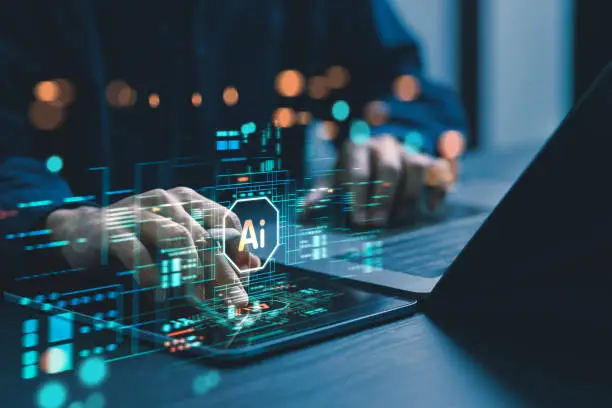
Technology
AI in 2025: How Artificial Intelligence is Reshaping Daily Life and Work
Artificial Intelligence (AI) is no longer confined to science fiction — it’s everywhere, from how we shop to how we work. In 2025, AI has become one of the most transformative forces in modern society. From ChatGPT-powered assistants to autonomous vehicles, the technology continues to evolve, making life more efficient, personalized, and connected.
According to Forbes Technology Council
, AI adoption in business has surged by more than 70% in the past two years — and that number continues to rise.
1. AI in Everyday Life
AI has become the invisible engine powering daily convenience. Smart devices now control home lighting, climate, and security through voice recognition and automation.
Platforms like Netflix, Spotify, and Amazon rely heavily on AI to provide tailored recommendations. Even your grocery list benefits from predictive intelligence — smart fridges track supplies, suggest recipes, and reorder items automatically.
Example: Amazon’s “Just Walk Out” technology
allows customers to shop without checkout lines. Sensors and AI algorithms identify products as shoppers pick them up, charging them automatically upon exit.
2. The Future of Work: Human + AI Collaboration
AI is transforming how professionals approach their jobs. Tools like ChatGPT
, Notion AI, and GitHub Copilot are now everyday assistants — automating repetitive tasks and enhancing creativity.
In offices, AI-driven project management tools predict delays, automate scheduling, and analyze productivity. While automation raises concerns about job displacement, it’s also creating new roles in AI ethics, data visualization, and prompt engineering.
💡 Tip: Stay ahead by learning how to work with AI — not against it. Upskilling in data literacy and AI collaboration is now essential.
For an in-depth guide to AI and job trends, check World Economic Forum’s Future of Jobs Report
.
3. AI in Healthcare
The healthcare industry is witnessing one of AI’s most profound transformations. From early cancer detection to mental health therapy bots, AI is improving diagnostics and accessibility.
AI-powered wearables now monitor heart rates, blood oxygen levels, and stress. Data is sent in real-time to healthcare providers for preventive care.
A 2025 study by MIT Technology Review
found that predictive algorithms can detect potential health risks weeks before symptoms appear.
Backlink Opportunity: Explore healthy AI-driven recipes and wellness tips at Allrecipes Health & Nutrition
.
4. AI and Ethical Challenges
As AI grows more powerful, ethical questions follow. Data privacy, misinformation, and bias are major concerns. Governments and organizations are working to regulate AI responsibly.
The European Union’s AI Act and similar laws in Africa and Asia are setting global standards for safe AI development.
According to Gartner Research
, ethical AI implementation is now a top priority for 8 out of 10 Fortune 500 companies.
⚖️ Ethical AI means building transparent, unbiased systems that benefit society rather than exploit it.
5. AI in Business and Finance
AI’s influence extends deep into business analytics and financial markets. Predictive algorithms are now helping investors forecast market behavior more accurately than ever before.
Fintech startups use AI to detect fraud, analyze risk, and personalize user experiences. Tools like ChatGPT for Finance, Kensho, and BloombergGPT are changing how investors interpret market data.
For financial insights and AI case studies, visit TechCrunch AI News
.
6. The Future: Human-Centered AI
Experts predict that by 2030, we’ll move from “machine intelligence” to “human-centered AI” — systems designed to enhance creativity, empathy, and emotional intelligence.
The next big step is Artificial General Intelligence (AGI) — a system that can think, reason, and learn like a human. While AGI remains in development, the foundation laid in 2025 is shaping its path.
🚀 AI’s future isn’t about replacing humans — it’s about empowering us to achieve more efficiently and intelligently.
Conclusion
AI in 2025 is redefining how we live, work, and connect. From smart homes to smart healthcare, the technology continues to evolve at lightning speed.
Yet, with innovation comes responsibility — the need to ensure AI remains ethical, transparent, and inclusive. As we step deeper into this digital era, one thing is clear: the future belongs to those who can harness AI for positive transformation.
Comments (0)
Please log in to comment
No comments yet. Be the first!